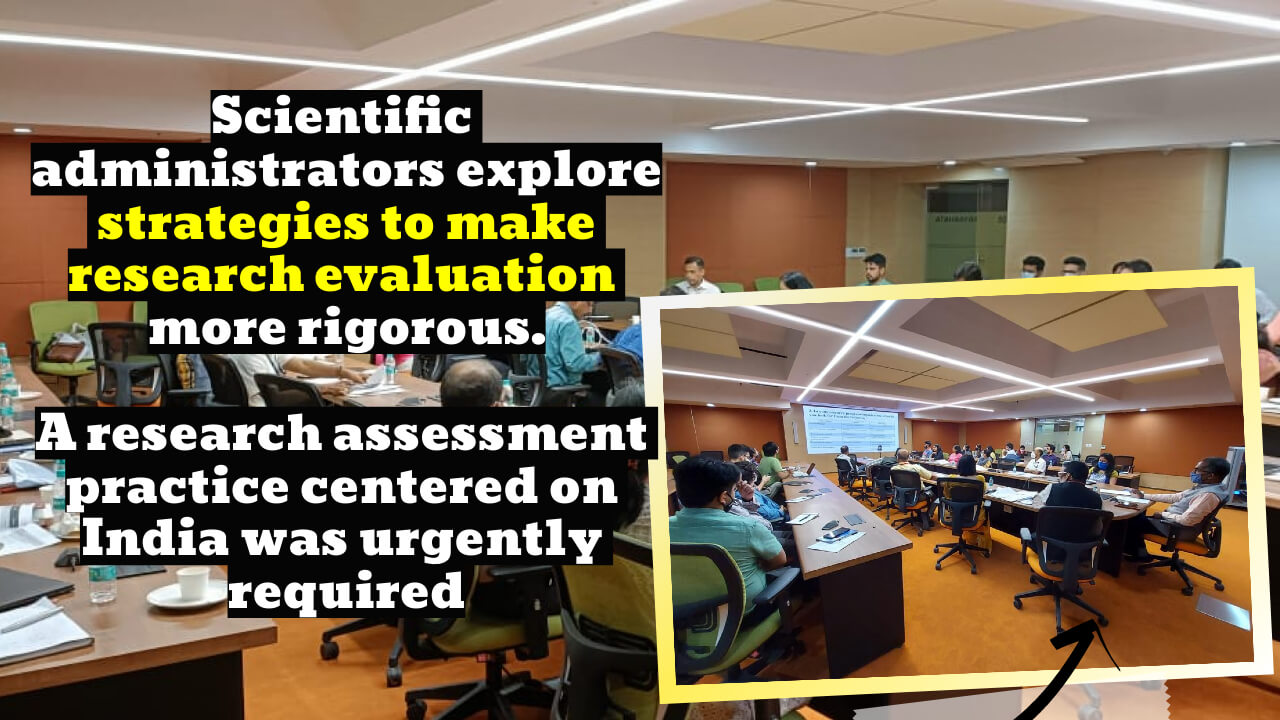It’s a big problem worldwide, and experts from all over the world are trying to figure out how to solve it. Dr. S Chandrasekhar, the Department of Science and Technology head, talked about the benefits of blind evaluation when the reviewer doesn’t know who submitted the project or which institute it came from.
There should be a new framework for evaluating research in the draft of India’s 5th STI Policy. This will help improve the research agenda. It was time for an India-based research assessment process, scientists and people from different funding agencies said at an event in Delhi.
Key Highlight:
- During a session on Research Assessment Practices in Indian Funding Agencies, scientific administrators from several ministries discussed how to improve research assessment processes strong and inclusive, encouraging fresh ideas and young talent.
- The day-long workshop was hosted by the Department of Science and Technology (DST) and included activities to examine the current state of research evaluation and offer improvements.
- DST’s Policy Coordination & Programme Management division organized the workshop and panel discussion in collaboration with DST Policy Fellows to better understand current intramural and extramural research assessment practices, their strengths and weaknesses, and ways to improve them.
- The scientific administrators agreed that as research interests and problems change, the current approaches focused on incentives or indicators and predominantly journal-based matrices needed to be modified to better the research agenda.
- A research assessment practice centered on India was urgently needed, they continued, citing global responsible metrics movements like the Leiden Manifesto and the DORA Declaration as examples.
Scientific administrators from different ministries talked about how to make research assessment methods more robust and inclusive so that new ideas relevant to India are encouraged and young people have a chance to show off their skills. This was a workshop on Research Assessment Practices in Indian Funding Agencies.
Many people all over the world are working hard to figure out how to improve the way research is assessed. DST Secretary Dr. S Chandrasekhar said that India should develop its way of evaluating research projects, their outputs, and their results that can be used in India. He talked about the advantages of blind evaluation when the reviewer doesn’t know who submitted the project or where it came from. Dr. Chandrasekhar also said it’s important to hold workshops to help reviewers become more aware.
The day-long workshop was organized by the Department of Science and Technology (DST) and was attended by scientific administrators of all levels. They took part in activities to help them assess the current state of research evaluation and develop ways to improve it.
It’s important to be careful when you look at the research, says Dr. Akhilesh Gupta, a senior advisor for the Department of Science and Technology. This means considering the huge range of India’s geography, gender, access to resources, institutional facilities, etc. He also said that there should be a group of reviewers who focus on a certain topic and be paid for their work.
The workshop and panel discussion was organized by the Policy Coordination & Programme Management (PCPM) division of the DST and DST Policy Fellows to learn about the current intramural and extramural research assessment practices of India’s funding agencies, as well as their strengths and weaknesses, through interactive exercises and discussions with stakeholders in the research ecosystem. They also looked for ways to improve these practices.
The science administrators said that because research priorities and challenges change over time, the current practices based on incentives or indicators and mostly based on journal-based matrices need to be rethought. This is what the draft 5th STI Policy of India suggested. There are a lot of different kinds of responsible metrics around the world, like the Leiden Manifesto, DORA Declaration, and so on, but they say that an India-based approach to research evaluation is what we need right now.
These government departments and other scientific funding agencies were there for a workshop and panel discussion. They talked about improving the country’s scientific research and how to get more money for that research from these government agencies.





[…] Scientific administrators explore approaches to improve the reliability of research evaluations. […]